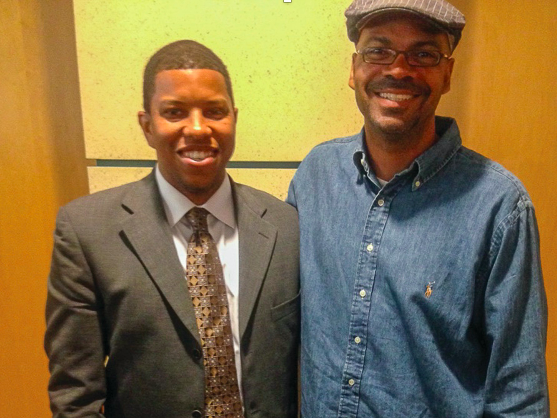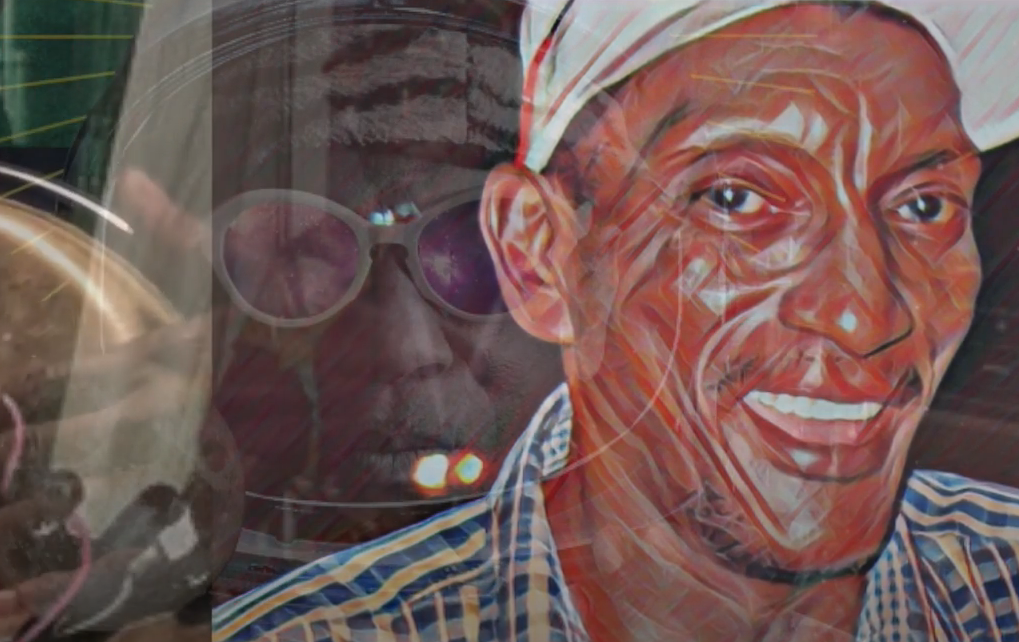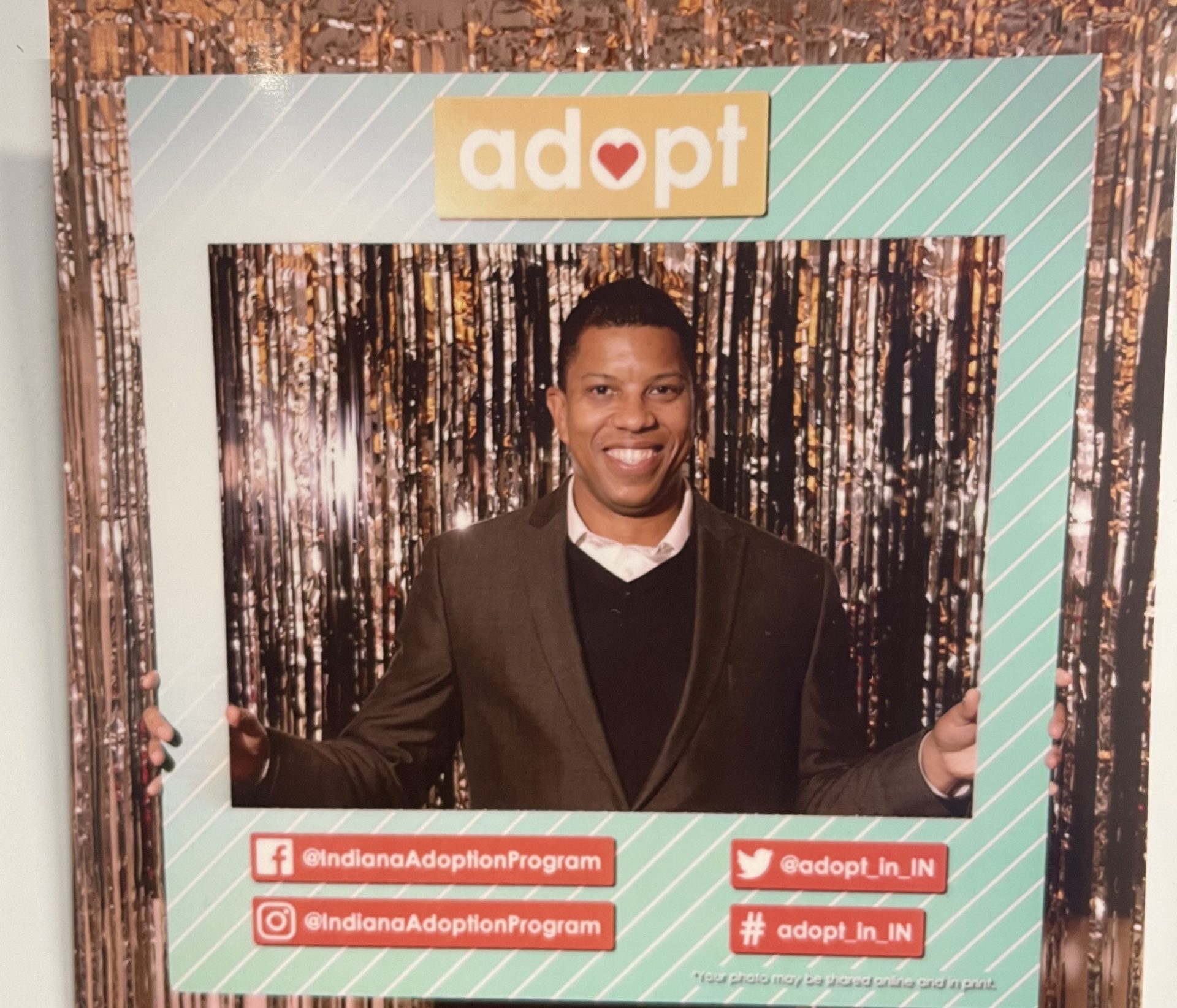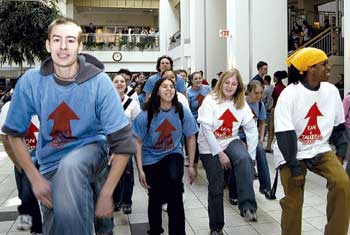“From this point forward, you are now the director of your own movie… What will your life story be about, who are the characters, what are the scenes… how will it end?”
—Mr. Finney
Just when I started to get comfortable with giving up, God sent me a guardian angel named Chip Finney. I always called him “Mr. Finney.” Our relationship started when he was my English teacher in 9th grade, and I was still living at my aunt’s house. But then, my school was shut down, and he was no longer my teacher. We lost contact for about six months. I was now in the second half of my 10th grade year in foster care, and lost. While I was losing hope, Mr. Finney was searching for me to let me know that he would be there for me. I couldn’t believe he thought I was worth his time. He was also the last person I expected to see in the neighborhood where my foster home was located. I saw my first AK47 behind that house. It was in a friend’s book bag. The neighborhood was pretty rough.
Mr. Finney came to tell me that even though he was not going to be teaching anymore, he still cared about me and wanted to offer me his contact information in case I wanted to stay in touch, just like he had with his other students. He had offered me something no other adult had until this point: his time. I jumped at the chance. Mr. Finney had no reason to spend time with me. He certainly wasn’t going to get anything back; I had nothing to offer. But he still did it. Mr. Finney honed in on the things that are most important in a fourteen-year-old’s life and asked me about them. What’s going on in school? How are you feeling? Nobody had ever done anything remotely close to that before. My aunt never asked me how I was feeling, what’s my plan for college, what’s my homework. Instead, she told me what I should be feeling: gratitude. I can’t imagine having a conversation with a twelve-year-old who had experienced such levels of neglect about gratitude. Teaching them what it means to be thankful in a practical sense is one thing. To say that you need to have gratitude when your mother is in jail and your father is MIA and your siblings were just sent away is something else. Mr. Finney had a strong sense of what was important for me to be thinking about, and he encouraged me to think about those things. When Mr. Finney was my English teacher, we would meet some mornings at 5:30 at the gym by the school for boxing lessons. At the time, he was an amateur boxer, which surprised all of us, because he didn’t have the bravado one usually associates with the sport. He was different; Mr. Finney was humble. As my informal mentor, Mr. Finney took me places I didn’t think I was supposed to be and was very matter of fact about it. He would take me to his office all the time and have me sit in on meetings with his co-workers, even his bosses. He took me to office functions, including an anniversary party at his boss’s really nice house. Mr. Finney also took me to Penn State football games and to his relatives’ homes for Thanksgiving and Christmas, which I still do to this day. Christmas with his family was completely different. They wouldn’t even be expecting me, and they would have some gift somewhere for me: a pair of socks or a phone charger. Mind you, all the while, Mr. Finney was not telling me to have gratitude. Instead, he was teaching me, by example, how to love myself and others.
Don’t get me wrong. Sometimes, I would be very mean to Mr. Finney, because I was just in a bad place. However, instead of telling me I should be thankful for his time, or that I was ungrateful, Mr. Finney would tell me that I was boring him, and that he could drop me back at the group home if I didn’t want to be there with him. That worked. I needed someone to give me hard lines to follow, because I grew up without boundaries. I also think this experience of unconditional love caused another internal shift within my psyche. It made me feel valuable. I didn’t want to let Mr. Finney down. He believed so strongly in me. It was almost like I had returned to the self I was when I was caring for my siblings. I didn’t want to let him down, just like I had never wanted to let my siblings down.
For one of our 9th grade lessons, Mr. Finney asked us, “What do you want to be when you grow up?” I responded, “a lawyer.” He then gave me a homework assignment to look up three black attorneys in the yellow pages and compose a letter asking each of them if I could interview them for a school project to learn about their profession. It was one of the most fulfilling assignments that I remember completing in all of my high school days. After I conducted an interview with Michael P. Benjamin, a prominent medical malpractice attorney in downtown Center City, Mr. Finney encouraged me to ask Attorney Benjamin if he would allow me to intern with him that summer. To my surprise, Attorney Benjamin agreed, and I ended up with one of the best summer work experiences ever. My new office was at the top floor of an amazing building in Center City, Philadelphia, and my confidence was through the roof. Mr. Finney had made his point. I really could do anything I put my mind to.
Life Lessons
Truth is, North Philly had taught me how to scheme. Your word was only a tool to get you through one crisis after another. It didn’t mean anything more than that. But Mr. Finney taught me why it was important to live by my word, how to be dependable, and other life lessons that helped to transform me into the person I am today.
One of the first things Mr. Finney told me was that I needed to have a vision for my future. Where are you going to be in ten or fifteen years? What do you want to be doing? I remember thinking, “Wow, that’s cool.” A vision of your future.
Another lesson he gave me: You are the director of your own movie. But here’s the thing, you were not in charge of the beginning of the movie. You can only start directing at the middle of the movie.
But the rest of the movie is yours to direct, too. So, what are the scenes? Who are the characters? What’s the plot? What are you moving toward in this story? And most importantly, how does your story end up? What’s the ending like? You’re the director, you get to decide that, and every day is an important decision about the directing of your movie—the big picture. That’s what you should spend your time on. I could picture it all.
Mr. Finney also made it plain to me, you don’t have a safety net, so don’t act like you do. There are kids out there who, when they fall, there’s a grandparent, a mom, or a dad, all waiting to catch them. Because of this, when they fall, they only fall to a certain point. They have people who won’t let them fall much further. That was not the case for me. It sounded really harsh, but the truth was that if I didn’t understand this, then I was going to make stupid decisions and fall. And it was going to be a free fall, because I had no one to catch me. Mr. Finney had his own family to catch. The best he could do was give me this information, this reality check, and I was appreciative. I suddenly felt in control of my life. You can suffer real losses, and there are real consequences for your losses. I had to start thinking critically.
One example was when I failed 10th grade. I had a small window of opportunity to get it right, or I would be free falling. I had failed two of my three major subjects, and every year, you need to pass the three major subjects in order to graduate from high school. Mr. Finney had helped me see that if I didn’t graduate from high school, I would be lucky enough to work at McDonald’s. And, surprisingly, I had promised myself at a young age that I would never work in fast food. But reality hit. Only one of the major subjects was offered each term in night school. So, I needed to go to school day and night every day for a full year in order to graduate. I went from skipping school to going to school twelve hours a day, every day.
Here’s the thing: I graduated. There were 240 students in my graduating class. I was #235. And with Mr. Finney’s guidance, I applied to Penn State. Thankfully, through Act 101, which allocates a number of slots for special circumstance kids to diversify the school, I actually got a slot. Neither of us knew about this program, but Mr. Finney knew Penn State had resources. I then convinced the counselor at Penn State to allow me to attend classes on the main campus rather than at the smaller, satellite campuses. I listened to my intuition and told her that I wouldn’t do well on a small, secluded campus with no people. I was from North Philly. I thrived in a fast-paced, urban environment with lots of people. She thankfully could tell from my energy that I was telling the truth and made a call to grant me a slot on the merits of her reputation. I got the main campus slot. I was on my way to Penn State University’s main campus! My life would never be the same.
Mr. Finney’s lessons gave me confidence, strength, and a will to survive, because a lot of the things he said, I could actually see myself doing. I knew that I could direct this movie.




